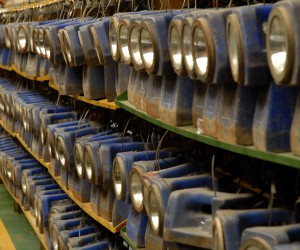When Oupa Sonopi started working in the mine at the age of 25, he was never informed of the high risk of contracting tuberculosis (TB).
It was only in 2010 when he was 30 years old, lying in a hospital bed, that the reality hit home. He spent one month under specialised care. Sonopi, who is originally from Free State, was out of work for six months while receiving his treatment.
"Although we would hear about colleagues in the mines being treated for TB, I was not aware that the environment we worked under could be a huge contributor to me getting TB. We were not informed when we were recruited," he says.
According to Sonopi, most of his colleagues who work at the gold mines in Carletonville, a small gold-mining town 86 kilometres west of Johannesburg, suffer from airborne diseases such as silicosis, pulmonary TB and other lung infections such as chronic obstructive airways disease and lung cancer.
High risk of TB
Data from the Department of Health indicates that about half-a-million mineworkers in South Africa and about two million former mineworkers, spread across Mozambique, South Africa, Lesotho and Swaziland, are at a high risk of contracting TB, just like Sonopi.
They are vulnerable to lung disease because of their exposure to multiple risk factors, including their overcrowded living settlements, which usually increases the risk of infection with airborne diseases. The high rates of HIV infection as well as their exposure to silica dust in the deep mine shafts – which are often poorly ventilated – also increase the risks.
Sonopi's sentiments are shared by his colleague, 54-year-old Phumlani Skame, who is originally from Eastern Cape. Skame, who has worked in the mine for 27 years, was also exposed to TB in 2010.
He partly blames the high risk miners face of contracting such diseases to the lack of proper education about the illnesses. But he also says the information around compensation for occupational diseases is often confusing.
"After my hospital stay in 2010 for example, I was made to fill in forms by my employer which we took to Johannesburg. We were only told that the forms were for compensation – but since then we have never received any communication nor we do not know what happened to them."






